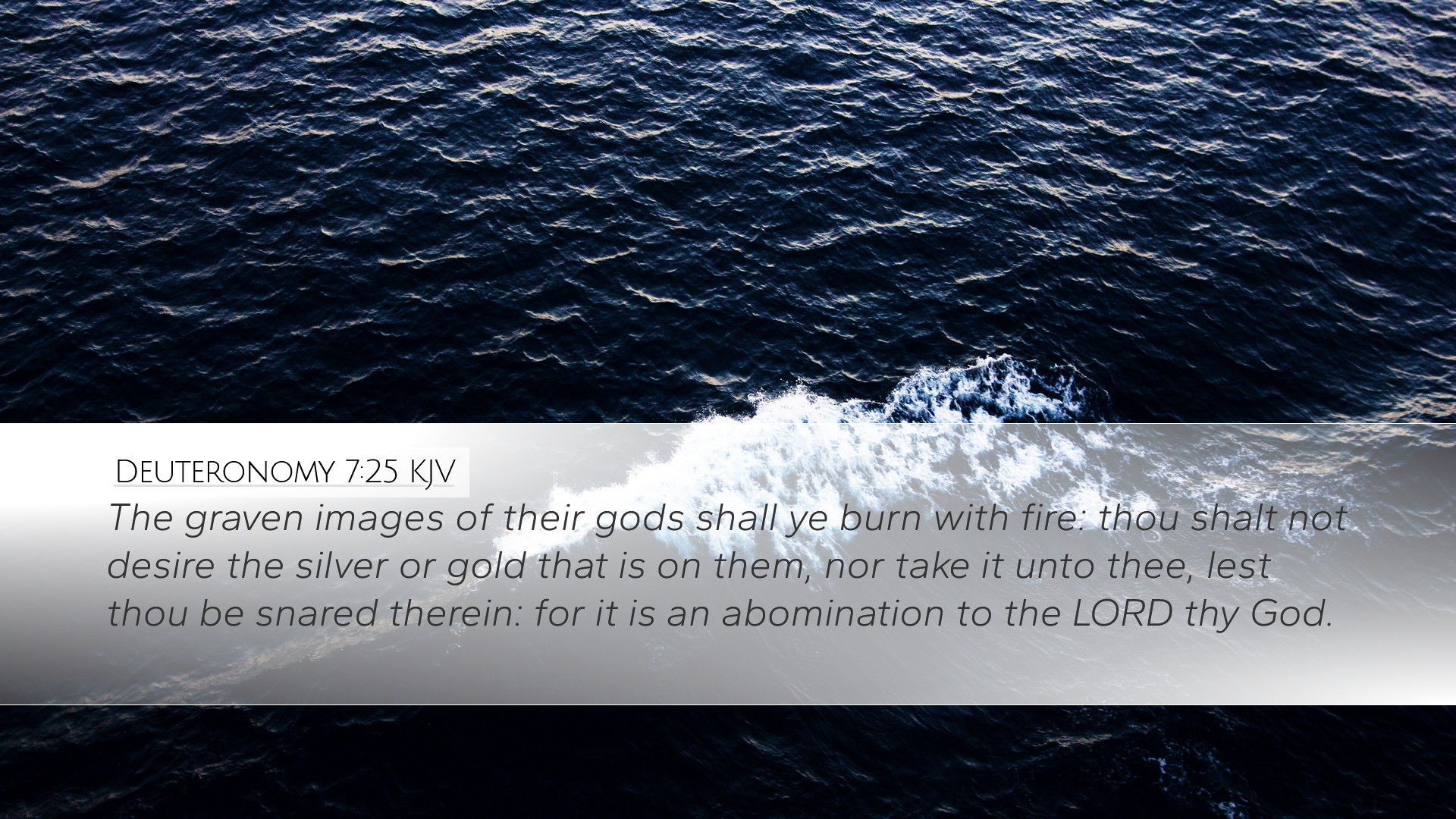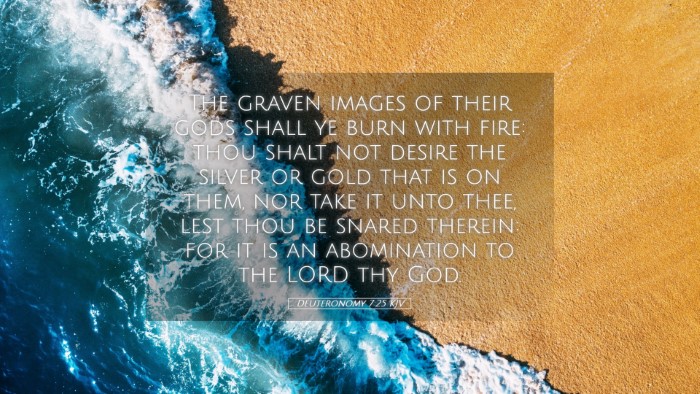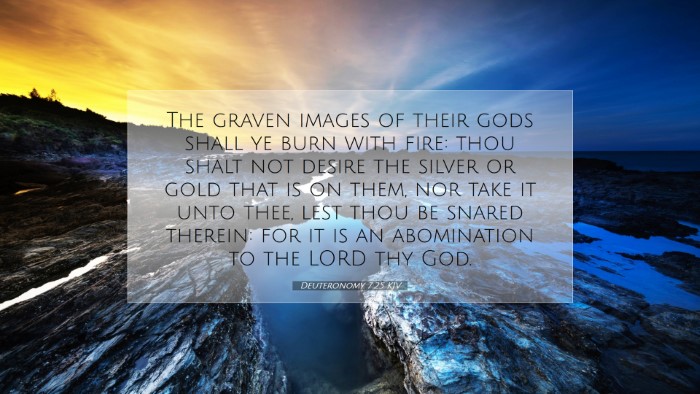Commentary on Deuteronomy 7:25
Verse Text: “The graven images of their gods shall ye burn with fire: thou shalt not desire the silver or gold that is on them, nor take it unto thee, lest thou be snared therein: for it is an abomination to the Lord thy God.”
Introduction
This verse serves as a powerful command concerning the total destruction of idolatrous influences that might infiltrate the lives of the Israelites as they enter the Promised Land. It embodies the overarching theme of exclusivity in worship and a call to holiness that permeates the Book of Deuteronomy.
Exegesis and Insights
Commentaries by notable theologians provide different facets of understanding this significant verse.
Matthew Henry’s Commentary
Henry emphasizes the phrase “the graven images of their gods,” highlighting the visible representations that can distract believers from true worship. He argues that God commanded the destruction of these idols as a demonstration of the severity of idolatry. Idols are not merely objects but are instruments of spiritual seduction that can lead to the corruption of one's heart.
He also notes the warning against desiring the silver and gold associated with these idols, suggesting that material temptation can also ensnare one’s heart. This warning serves as a timeless reminder of the dangers posed by covetousness, urging believers to prioritize spiritual values over material wealth.
Albert Barnes’ Notes
Barnes elaborates on the command to burn the graven images, suggesting that this act symbolizes the total eradication of idolatry. It is not simply about the destruction of physical objects but a deep-rooted rejection of the false religious systems they represent. The act of burning also signifies a definitive break from previous associations and practices that lead away from God.
Furthermore, Barnes emphasizes that desiring the wealth of these idols can lead to spiritual ruin. He explains how entanglement with the wealth associated with idolatry can choke spiritual growth, akin to the parable of the sower where thorns steal away the vitality of the seeds planted. Thus, believers are cautioned to avoid any form of association that may compromise their devotion to God.
Adam Clarke’s Commentary
Clarke provides a rich historical and cultural background for this commandment, elucidating how conforming to the practices of surrounding nations led to societal downfall. He underscores that the Israelites were being integrated into a land filled with abominations that directly contradicted their covenant relationship with God.
Clarke contemplates the implications of “be snared therein.” He views this phrase as a cautionary note pointing toward the psychological and spiritual pitfall of becoming too intertwined with the practices and beliefs of other nations. He insists that the underlying message of this command is to uphold holiness and separation in the covenant community.
Theological Reflections
This verse encapsulates the tension between faithfulness to God and the allure of cultural assimilation. It challenges modern believers to consider what ‘graven images’ exist in their lives—those things that distract from true worship. The command to destroy these idols is mirrored in the New Testament (e.g., 1 John 5:21), indicating the timeless nature of God's call to purity.
Application for Pastors and Leaders
- Preach Holiness: Emphasize the importance of maintaining a clear distinction between the church and worldly practices.
- Encourage Accountability: Foster environments where congregants can discuss their struggles with temptation and idolatry.
- Promote Stewardship: Teach about the dangers of materialism and encourage the use of resources for God's kingdom rather than for personal gain.
For Students of Theology
- Contextual Analysis: Explore the cultural implications of idolatry in ancient Near Eastern societies compared to today.
- Textual Criticism: Study variations in translations to understand the nuances of the original Hebrew text.
- Thematic Integration: Connect this command to broader themes of holiness found throughout Scripture.
For the Modern Believer
- Self-Examination: Reflect on personal idols—what are the things that distract from devotion to God?
- Commitment to Community: Align with a community that values spiritual growth and mutual support in the fight against idolatrous temptations.
Conclusion
Deuteronomy 7:25 serves as a stringent reminder that God seeks a people wholly dedicated to Him. The annihilation of graven images stands as a compelling call not just for Israel but for all believers to evaluate the influences that may detract from their commitment to God. Through both historical context and theological understanding, this scripture is rich with relevance for today’s faith communities.


